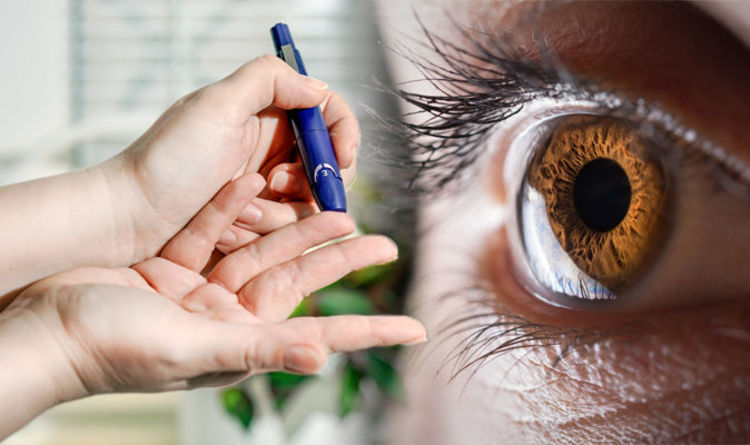Taking too much sugar? Why your eyes may suffer
In Summary
- When your blood sugar levels soar, the tiny blood vessels in your eyes can suffer serious damage.
- Here is what you need to know to keep your eyes healthy and prevent vision loss if you have diabetes.
Dr Grace Ssali, a consultant ophthalmologist at Mulago National Referral Hospital, notes that all forms of diabetic eye diseases can cause severe vision loss and blindness. It is, therefore, important to have your diabetes treated as soon as you are diagnosed and ensure to keep it in balance to prevent loss of sight.
“After diagnosis, do an extensive eye checkup in order to find out the extent of damage and prevent any further damages to the eye,” says Dr Ssali.
What happens?
When someone has diabetes, over time the blood vessels in the retina become thicker and the blood flowing in the blood vessels slows down. This makes the vessels become fragile so they swell or bleed and leak into the eye. Dr ssali says: “The vessels can close, stopping blood from passing through and blood acts as food for the eye so when the supply is stopped, visual impairment is likely to occur and if not treated immediately, the sight may totally be damaged and reversal may be impossible.”
According to Dr William Lumu, a diabetologist at Mengo Hospital, an imbalance of sugar levels in the body, causes damage of blood vessels on the retina. The retina thereafter manufactures new, abnormal blood vessels.
He remarks that neovascular glaucoma occurs when new blood vessels grow on the iris closing off the fluid flow in the eye and raising the eye pressure.
The early stage of diabetic retinopathy may not be noticed but tiny blood vessels within the retina leak blood or fluid. The leaking fluid causes the retina to swell or to form deposits in the eye and many people with diabetes have it.
He says, “After some time, the deposits increase in number to form specks or spots floating in your vision. This is a more advanced stage of diabetic eye disease which leads to growth of abnormal new blood vessels on the retina and optic nerve.”

Prepare a list of what you have been experiencing so that your doctor knows where and how to start.
The type of treatment one undergoes depends on how long the problem has stayed and what the ophthalmologist observes in the eyes. Treatment options for diabetic eye diseases according to Dr Ssali are quite expensive and people need to rather prevent them. A combination of diabetes and high blood pressure aggravate eye health and can lead to vision loss. Controlling your blood pressure keeps your eye’s blood vessels healthy.
“It is important to carefully follow the diet recommended by the nutritionist, take the medicine prescribed for you on time. A good control of the sugar can even bring back part of your vision back,” she remarks.
How to tell
A blurry vision is usually one of the first warning signs of diabetes. Your vision may be blurry because fluid is leaking into your eye lens. This makes the lens swell and change shape. The changes make focusing in the eyes very hard so things start to look fuzzy. The swelling also brings about a wavy vision and colour changes.
“Diabetic retinopathy affects blood vessels in the retina which is the light-sensitive tissue that lines the back of the eye. It is the commonest cause of vision loss among people with diabetes and causes visual impairment and blindness among many diabetics,” says Dr Ssali.
Sometimes, if you have diabetes, blood vessels leak into the center of the eye. Blurry vision, spots or floaters, or having trouble with night vision are signs that this is happening.
You may also get blurred vision when you start insulin treatment. This is due to shifting fluids, but it generally resolves after a few weeks. For many people, as blood sugar levels stabilize, so does their vision.
Prevention
If you have diabetes, you have an increased risk for a range of eye problems. It is, therefore, important to have regular eye checkups for a comprehensive eye examination.
Some people may take a blurred vision for a minor issue but is indicative of a serious eye disease or an underlying condition other than diabetes. Early treatment can always correct the problem or prevent it from getting worse.
“Report blurry vision and other vision changes to your doctor immediately and ensure to tell your doctor about all the symptoms, as well as all the medications you take,” Dr William Lumu, a diabetologist at Mengo Hospital, warns.
Preventing vision loss from diabetic retinopathy is possible if you talk to your primary care doctor or diabetologist about controlling your blood sugar. High blood sugar damages retinal blood vessels and leads to vision loss.
If you have high blood pressure or kidney problems, make sure they are treated because they too can damage your eyesight.
Dr Grace Ssali, a consultant ophthalmologist at Mulago National Referral Hospital, says you should have routine checkups with an ophthalmologist for dilated eye exam once diagnosed with diabetes. Diabetic retinopathy may be found before you even notice any vision problems.
If you notice vision changes in one or both eyes see an ophthalmologist immediately. This is the best way to prevent vision loss.









Recent Comments